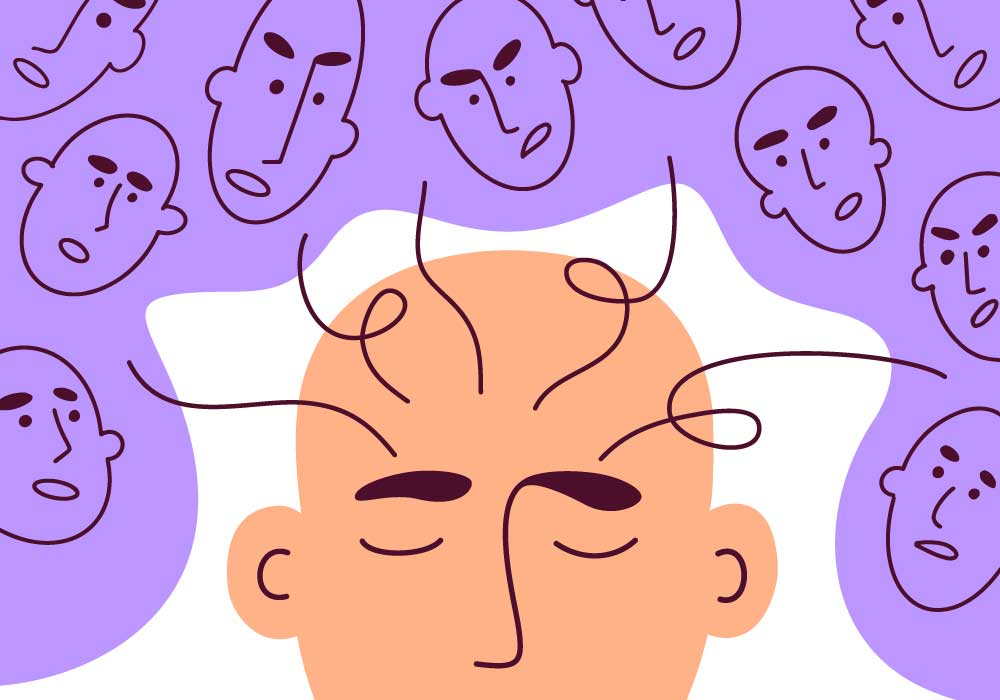
In today’s fast-paced world, many individuals experience moments when an inexplicable bad mood takes over their day, leaving them frustrated and overwhelmed. Often, this isn’t just simply feeling grumpy—it can be the manifestation of deep-seated emotional stress that emerges as irritability or low mood. In this article, we explore the hidden connection between emotional stress and a bad mood and provide practical insights and strategies to help you understand and manage your feelings. If you’ve ever wondered why your mood shifts without a clear cause, or if you struggle with stress hidden behind irritability, keep reading to discover how you can regain control over your emotional wellbeing.
Understanding the Hidden Connection Between Emotional Stress and Bad Mood
Emotional stress often sneaks into our lives without notice. Many people confuse its subtle signs with everyday irritability or a mere bad mood. Yet, research and clinical observations reveal that a hidden emotional burden can manifest through both physical and psychological symptoms, profoundly affecting our daily lives. In our modern society, the pressures from work, relationships, and high expectations create the perfect storm for stress to settle in.
It is important to understand that a consistently negative mood may not simply be a personality trait or a reaction to minor setbacks. It can be a clear sign of deeper, unresolved issues. When people refer to ‘emotional stress disguised as a bad mood’, they point to this phenomenon: chronic stress that hides behind ordinary moodiness. Studies indicate that prolonged exposure to stress hormones like cortisol can even alter brain chemistry, reinforcing a negative cycle.
Acknowledging this connection is the first step towards healing. In this section, we delve into the scientific mechanisms behind stress responses, review recent studies, and explain how your emotional state might be misinterpreted as a simple bad mood. By recognizing these signs, you can start your journey toward understanding both your mental and physical reactions and ultimately reclaim your emotional balance.
Identifying the Signs of Emotional Stress Disguised as a Bad Mood

Identifying emotional stress masked as a bad mood requires close attention to your body’s signals. Many individuals experience physical manifestations such as headaches, muscle tension, or fatigue, alongside emotional indicators like irritability or persistent sadness. When these symptoms consistently appear over time, they can be red flags that something deeper than routine frustration is at hand.
Observing patterns is essential. Ask yourself: Do you find yourself getting unexpectedly angry or sad without a clear reason? Are daily activities that once brought joy now feeling burdensome? Such reflections may reveal that what you’re experiencing goes beyond a mere mood disorder and might be the surface of a deeper emotional challenge. The term ‘emotional stress disguised as a bad mood’ captures this hidden struggle, prompting us to look beyond appearances.
Studies from organizations like the American Psychological Association suggest that continuous stress can distort our perception of everyday challenges. Thus, it is vital to distinguish between transient emotional responses and the more subtle, cumulative impact of chronic stress. Early recognition of these signs can guide you to seek support or make lifestyle changes to alleviate stress.
Effective Strategies to Manage Stress and Improve Your Emotional Wellbeing

Once you recognize the presence of emotional stress, the next step is to implement strategies to manage it effectively. Many techniques, such as mindfulness meditation, cognitive-behavioral techniques, and regular physical activity, have proven effective in reducing stress levels. Incorporating these practices into your daily routine can help build a resilient mental framework that supports long-term wellbeing.
Mindfulness is particularly powerful because it grounds you in the present moment, allowing you to acknowledge your emotions without judgment. This approach not only calms the mind but also helps identify triggers contributing to your bad mood. Just a few minutes of mindful breathing or guided meditation each day can act as a reset button for stress, an effectiveness supported by modern research.
Other important strategies include maintaining a consistent sleep schedule, adopting a nutritious diet, and participating in social or community activities that elevate your mood. By understanding that your bad mood might be a sign of hidden emotional stress, you empower yourself to make changes that directly target and reduce that underlying tension.
Professional Help, Lifestyle Changes, and Building Resilience
It is crucial to recognize when emotional stress has exceeded your personal ability to cope. In such cases, professional help—such as counseling or therapy—can provide significant relief. Many therapists specialize in stress management and cognitive-behavioral strategies that help untangle the complexities of a bad mood rooted in deeper emotional stress.

Lifestyle changes also play a fundamental role. Establishing routines that include physical exercise, regular social interactions, and ample rest can be transformative. Gradually rebalancing your daily schedule can reduce the intensity of negative emotions and lessen the hold of chronic stress that often hides behind a persistent bad mood.
Building resilience is an ongoing process that involves setting small, achievable goals to regain control over your daily life. Practices such as journaling or cognitive restructuring exercises empower you to reframe negative thoughts and develop healthier coping mechanisms. As you build resilience, the grip of your bad mood may lessen, revealing a more stable and positive emotional state.
Real-Life Examples, Case Studies, and Additional Resources
Real-life stories and case studies offer valuable insights into how emotional stress can affect individuals in different ways. For instance, a case study published in the Journal of Mental Health described a middle-aged professional overwhelmed by work and family pressures, whose persistent bad mood was later identified as a manifestation of deep-seated emotional stress. Such examples reinforce the idea that what appears as simple irritability may actually signal a more complex emotional struggle.
In another example, a young professional initially attributed bouts of anger and fatigue to a hectic work schedule. However, he eventually realized that his ‘bad mood’ was closely linked to unresolved personal issues and chronic emotional stress. After seeking professional counseling and adopting stress-reduction practices, he experienced a notable improvement in his overall quality of life. His journey underscores the fact that with the right support and tools, breaking free from negative cycles is possible.
For those interested in further information, additional resources such as the American Psychological Association (www.apa.org) and Mindful.org provide access to quality research and practical advice on mental health and mindfulness. Books like ‘The Stress Solution’ and ‘Emotional Intelligence’ are also excellent guides. These resources, combined with evidence-based practices, emphasize how crucial it is to recognize and address emotional stress as a core factor behind recurring bad moods.
Content Additional
To further explore this topic, it is important to highlight the biological and environmental factors that contribute to emotional stress. Genetic predispositions, combined with challenging social conditions, can intensify your stress response. Studies published in respected journals show that both hereditary factors and lifestyle choices play key roles in how our bodies manage stress hormones. This dual influence helps explain why some individuals endure prolonged periods of bad mood while others recover more quickly.
A comprehensive review of global mental health data reveals that stress-related disorders are on the rise. Notably, an increasing number of young professionals report symptoms of burnout and mood disorders. This trend underscores the urgent need for systemic changes in how we balance work and personal life. Many workplaces are now implementing wellness programs and mental health days, showing promising results in reducing overall stress among employees. These shifts demonstrate that investing in mental wellbeing is both beneficial and necessary.

Cultural factors also play a significant role in how emotional stress is perceived and managed. In some societies, discussing vulnerabilities or emotional challenges is stigmatized, leading individuals to internalize their stress. In environments where mental health is seldom discussed, suppressed emotions can accumulate and eventually manifest as persistent bad moods. Recognizing this, many community leaders and mental health advocates are working to remove such stigmas and promote open conversations about emotional wellbeing.
Education and awareness are key to driving change. Workshops, seminars, and online courses focused on mental health have become increasingly popular as more people seek to understand and manage their emotions. These educational initiatives empower individuals with practical strategies and a nuanced understanding of emotional triggers, while also encouraging communities to build supportive networks that can mitigate chronic stress.
Education and awareness are key to driving change. Workshops, seminars, and online courses focused on mental health have become increasingly popular as more people seek to understand and manage their emotions. These educational initiatives empower individuals with practical strategies and a nuanced understanding of emotional triggers, while also encouraging communities to build supportive networks that can mitigate chronic stress.
In conclusion, understanding the link between emotional stress and a bad mood opens the door to more compassionate self-awareness and encourages proactive measures for mental and emotional wellbeing. With a combination of self-help techniques, lifestyle adjustments, and, if needed, professional guidance, you can reclaim your happiest self. Remember, emotional stress may be a hidden adversary, but with the right knowledge and strategies, you can confront its effects head on. Embrace your journey toward better mental health with confidence, knowing that positive change is well within reach.




